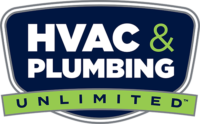The Negative Effects of Poor IAQ and What You Can Do About It
Ever since the news spread that the air inside the average American household is far worse than it is outside, there’s been a lot of buzz going around about improving indoor air quality (IAQ). Whole-house ventilation systems and air purifiers have become top sellers at home improvement stores in an attempt to rid homes of airborne contaminants.
While these are certainly helpful tools in the battle against indoor pollution, there are other steps you can take to ensure your air is protected – most of which are relatively simple and inexpensive to do. Taking such measures isn’t just vital for your health, it’s necessary for preventing home damage as well.
Health Effects
The effects of poor IAQ can vary greatly with each individual, depending on a variety of factors. Your overall health, age, the amount of pollutants in the air, and the length of time you are exposed to them are some of the biggest determinants. You may experience the symptoms right away, or it could take years for them to show up.
- Short-term effects: Fatigue, headaches, irritation of the eyes, throat and nose, and other flu-like symptoms are among the effects you may experience shortly after exposure to excessively dirty or contaminated air. Ailments such as hypersensitivity pneumonitis and asthma can also be triggered after short-term exposure.
- Long-term effects: Long-term exposure to poor IAQ can lead to serious, life-threatening health issues including cancer, heart disease, and some respiratory diseases.
Home Damage
Although you may have never considered it, poor IAQ can actually go beyond harming your health; your home and some of the important components inside it are at risk as well. For instance, excess humidity can encourage mold growth that can damage your home’s fixtures and structure, as well as your belongings.
Another example is when your air filter gets clogged with dirt. You may already be aware that changing your air filters regularly helps keep pollutants out of the air you breathe, but doing so also helps protect your HVAC system from unnecessary wear and tear. Dirty air filters restrict air flow and cause your system to work harder in an attempt to compensate. This can reduce the efficiency of your system, which means it’s not filtering the air as well.
Simple (but Effective) Steps for Improving IAQ
By practicing the following simple steps, you can improve the IAQ in your home:
- Clean your home with products that are labeled “fragrance-free,” “low VOC” or “no VOC,” at all times. Traditional cleaners may smell nice, but are often loaded with harmful chemicals.
- Dust the surface areas of your house twice each week with a damp cloth instead of a dry duster, as dry dusting just spreads contaminants into your breathing space.
- Vacuum all of your carpeted areas, preferably with a machine that has a HEPA filter, twice every week to prevent the buildup of allergens, dirt and other pollutants.
- Keep the humidity in your home at healthy levels (between 30 and 50 percent). Use your A/C or a dehumidifier to help reduce excess humidity. Use exhaust fans when cooking or showering as well.
- Use a HEPA air filter to make your A/C even more effective at removing pollutants. Whole-house or room air cleaners can also help clear toxins from your environment.
- Ventilate your home as needed. Install trickle vents over your existing windows, whenever doing so can fit your budget, as they provide one of the most effective ways to safely ventilate your home. The vents transfer indoor pollutants to the outside, while bringing fresh air into your home. If installing trickle vents isn’t an option right now, open windows when outdoor conditions allow it.
- Put allergen impermeable or plastic zip-up covers on your pillows and mattresses to keep dust mites out of your bedding. You should also clean all of your bedding in hot water once every week.
- Keep any pets out of the bedrooms of those who are sensitive. Your pets should also be brushed outside daily and bathed once weekly, ideally by someone who isn’t allergic to dander.
- Insist on keeping cigarette smoke as far from your home as possible, as second-hand smoke can lead to serious health issues, including early premature death.
For more information on the effects of poor IAQ in your Fairfax area home, please contact us at HVAC & Plumbing Unlimited Heating & Air Conditioning.
